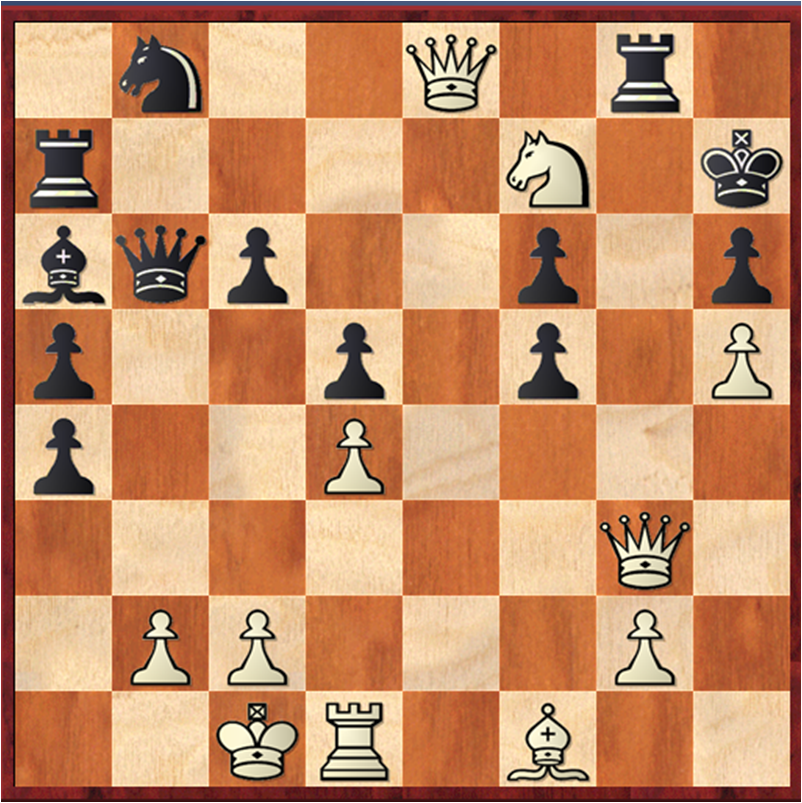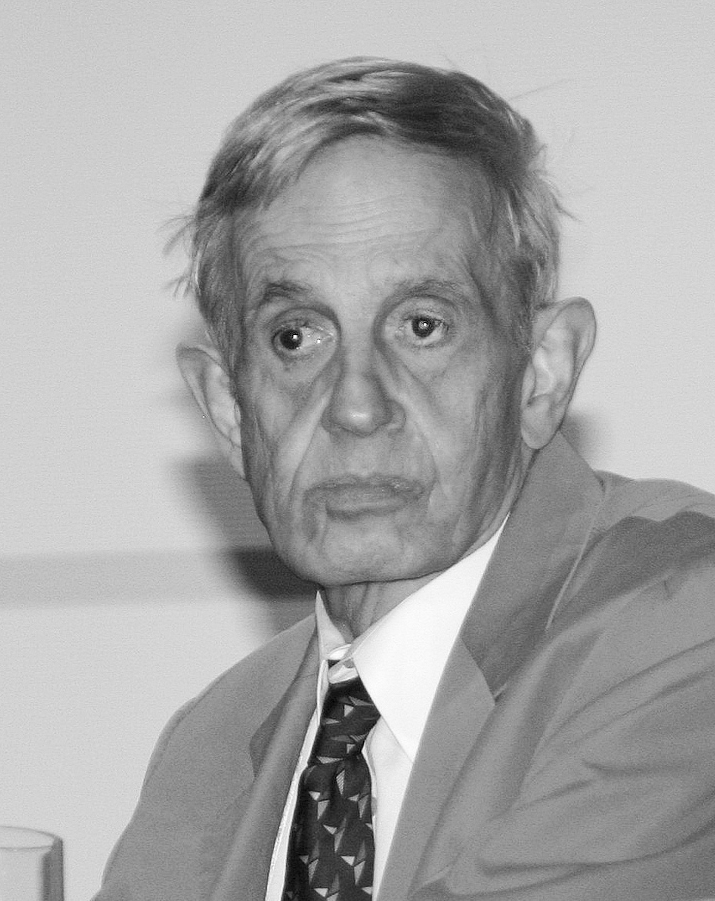|
Perfect Recall (game Theory)
In game theory, perfect recall is a property of players within extensive-form games, introduced by Harold W. Kuhn in 1953. it describes a player's ability to remember their past actions and the information they possessed at previous decision points. For example, in a simplified card game where a player makes multiple betting rounds, perfect recall means they remember their own previous bets and the cards they've seen. Essentially, it indicates that a player does not "forget" relevant information acquired during the game. It is important to distinguish perfect recall from perfect information. While perfect information means all players know all previous actions of all players, perfect recall means a player remembers their own past actions and knowledge. Significance Perfect recall is crucial for the consistency of rational decision-making in sequential games. If a player forgets past information, their current decisions may contradict their earlier intentions. The concept plays a ... [...More Info...] [...Related Items...] OR: [Wikipedia] [Google] [Baidu] |
Game Theory
Game theory is the study of mathematical models of strategic interactions. It has applications in many fields of social science, and is used extensively in economics, logic, systems science and computer science. Initially, game theory addressed two-person zero-sum games, in which a participant's gains or losses are exactly balanced by the losses and gains of the other participant. In the 1950s, it was extended to the study of non zero-sum games, and was eventually applied to a wide range of Human behavior, behavioral relations. It is now an umbrella term for the science of rational Decision-making, decision making in humans, animals, and computers. Modern game theory began with the idea of mixed-strategy equilibria in two-person zero-sum games and its proof by John von Neumann. Von Neumann's original proof used the Brouwer fixed-point theorem on continuous mappings into compact convex sets, which became a standard method in game theory and mathematical economics. His paper was f ... [...More Info...] [...Related Items...] OR: [Wikipedia] [Google] [Baidu] |
Extensive-form Game
In game theory, an extensive-form game is a specification of a game allowing for the explicit representation of a number of key aspects, like the sequencing of players' possible moves, their choices at every decision point, the (possibly imperfect) information each player has about the other player's moves when they make a decision, and their payoffs for all possible game outcomes. Extensive-form games also allow for the representation of incomplete information in the form of chance events modeled as " moves by nature". Extensive-form representations differ from normal-form in that they provide a more complete description of the game in question, whereas normal-form simply boils down the game into a payoff matrix. Finite extensive-form games Some authors, particularly in introductory textbooks, initially define the extensive-form game as being just a game tree with payoffs (no imperfect or incomplete information), and add the other elements in subsequent chapters as refinements ... [...More Info...] [...Related Items...] OR: [Wikipedia] [Google] [Baidu] |
Harold W
Harold may refer to: People * Harold (given name), including a list of persons and fictional characters with the name * Harold (surname), surname in the English language * András Arató, known in meme culture as "Hide the Pain Harold" Arts and entertainment * ''Harold'' (film), a 2008 comedy film * ''Harold'', an 1876 poem by Alfred, Lord Tennyson * ''Harold, the Last of the Saxons'', an 1848 book by Edward Bulwer-Lytton, 1st Baron Lytton * '' Harold or the Norman Conquest'', an opera by Frederic Cowen * ''Harold'', an 1885 opera by Eduard Nápravník * Harold, a character from the cartoon ''The Grim Adventures of Billy & Mandy'' * Harold & Kumar, a US movie; Harold/Harry is the main actor in the show. Places ;In the United States * Alpine, Los Angeles County, California, an erstwhile settlement that was also known as Harold * Harold, Florida, an unincorporated community * Harold, Kentucky, an unincorporated community * Harold, Missouri, an unincorporated communi ... [...More Info...] [...Related Items...] OR: [Wikipedia] [Google] [Baidu] |
Perfect Information
Perfect information is a concept in game theory and economics that describes a situation where all players in a game or all participants in a market have knowledge of all relevant information in the system. This is different than complete information, which implies Common knowledge (logic), common knowledge of each agent's utility functions, payoffs, strategies and "types". A system with perfect information may or may not have complete information. In economics this is sometimes described as "no hidden information" and is a feature of perfect competition. In a market with perfect information all consumers and producers would have complete and instantaneous knowledge of all market prices, their own utility and cost functions. In game theory, a sequential game has perfect information if each player, when making any decision, is perfectly informed of all the events that have previously occurred, including the "initialization event" of the game (e.g. the starting hands of each player ... [...More Info...] [...Related Items...] OR: [Wikipedia] [Google] [Baidu] |
Sequential Game
In game theory, a sequential game is defined as a game where one player selects their action before others, and subsequent players are informed of that choice before making their own decisions. This turn-based structure, governed by a time axis, distinguishes sequential games from Simultaneous game, simultaneous games, where players act without knowledge of others’ choices and outcomes are depicted in Payoff Matrix, payoff matrices (e.g., Rock paper scissors, rock-paper-scissors). Sequential games are a type of dynamic game, a broader category where decisions occur over time (e.g., Differential game, differential games), but they specifically emphasize a clear order of moves with known prior actions. Because later players know what earlier players did, the order of moves shapes strategy through information rather than timing alone. Sequential games are typically represented using Decision tree, decision trees, which map out all possible sequences of play, unlike the static matr ... [...More Info...] [...Related Items...] OR: [Wikipedia] [Google] [Baidu] |
Mixed Strategies
In game theory, a move, action, or play is any one of the options which a player can choose in a setting where the optimal outcome depends ''not only'' on their own actions ''but'' on the actions of others. The discipline mainly concerns the action of a player in a game affecting the behavior or actions of other players. Some examples of "games" include chess, bridge, poker, monopoly, diplomacy or battleship. The term strategy is typically used to mean a complete algorithm for playing a game, telling a player what to do for every possible situation. A player's strategy determines the action the player will take at any stage of the game. However, the idea of a strategy is often confused or conflated with that of a move or action, because of the correspondence between moves and pure strategies in most games: for any move ''X'', "always play move ''X''" is an example of a valid strategy, and as a result every move can also be considered to be a strategy. Other authors treat strateg ... [...More Info...] [...Related Items...] OR: [Wikipedia] [Google] [Baidu] |
Behavioral Strategy
Behavioral strategy is an interdisciplinary field within strategic management that integrates insights from psychology, behavioral economics, and cognitive science to better understand how individuals and groups make strategic decisions. It challenges the assumptions of traditional economic models that presume perfect rationality, instead emphasizing how real-world decision-making is shaped by cognitive biases, emotions, social dynamics, and bounded rationality. Emerging in response to the limitations of purely rational models of strategy, behavioral strategy seeks to incorporate psychologically realistic assumptions into both the theory and practice of strategic management. It applies behavioral perspectives to core strategic topics such as CEO and top management team behavior, market entry decisions, competitive dynamics, and organizational change. It is typically characterized by the following features: * It is microfoundational, drawing on individual-level psychological proce ... [...More Info...] [...Related Items...] OR: [Wikipedia] [Google] [Baidu] |
Kuhn's Theorem
In game theory Game theory is the study of mathematical models of strategic interactions. It has applications in many fields of social science, and is used extensively in economics, logic, systems science and computer science. Initially, game theory addressed ..., Kuhn's theorem is a foundational result in the analysis of extensive-form games, first formalized by American mathematician Harold W. Kuhn in 1953. The theorem establishes a formal equivalence between two types of strategies in extensive-form games with perfect recall: mixed strategies and behavior strategies. A mixed strategy assigns probabilities to complete plans of action (also called pure strategies), while a behavior strategy assigns probabilities to individual actions at each decision point. Kuhn's theorem shows that in any finite extensive-form game where players have perfect recall (the ability to remember all of their previous moves and information), every mixed strategy has an equivalent behavior st ... [...More Info...] [...Related Items...] OR: [Wikipedia] [Google] [Baidu] |
Information Set (game Theory)
In game theory, an information set is the basis for decision making in a game, which includes the actions available to players and the potential outcomes of each action. It consists of a collection of decision nodes that a player cannot distinguish between when making a move, due to incomplete information about previous actions or the current state of the game. In other words, when a player's turn comes, they may be uncertain about which exact node in the game tree they are currently at, and the information set represents all the possibilities they must consider. Information sets are a fundamental concept particularly important in games with imperfect information. In games with perfect information (such as chess or Go (game), Go), every information set contains exactly one decision node, as each player can observe all previous moves and knows the exact game state. However, in games with imperfect information—such as most Card game, card games like poker or Bridge (card game), bri ... [...More Info...] [...Related Items...] OR: [Wikipedia] [Google] [Baidu] |
Game Theory
Game theory is the study of mathematical models of strategic interactions. It has applications in many fields of social science, and is used extensively in economics, logic, systems science and computer science. Initially, game theory addressed two-person zero-sum games, in which a participant's gains or losses are exactly balanced by the losses and gains of the other participant. In the 1950s, it was extended to the study of non zero-sum games, and was eventually applied to a wide range of Human behavior, behavioral relations. It is now an umbrella term for the science of rational Decision-making, decision making in humans, animals, and computers. Modern game theory began with the idea of mixed-strategy equilibria in two-person zero-sum games and its proof by John von Neumann. Von Neumann's original proof used the Brouwer fixed-point theorem on continuous mappings into compact convex sets, which became a standard method in game theory and mathematical economics. His paper was f ... [...More Info...] [...Related Items...] OR: [Wikipedia] [Google] [Baidu] |
Mathematical Economics
Mathematical economics is the application of Mathematics, mathematical methods to represent theories and analyze problems in economics. Often, these Applied mathematics#Economics, applied methods are beyond simple geometry, and may include differential and integral calculus, Recurrence relation, difference and differential equations, Matrix (mathematics), matrix algebra, mathematical programming, or other Computational economics, computational methods.TOC. Proponents of this approach claim that it allows the formulation of theoretical relationships with rigor, generality, and simplicity. Mathematics allows economists to form meaningful, testable propositions about wide-ranging and complex subjects which could less easily be expressed informally. Further, the language of mathematics allows economists to make specific, positiv ... [...More Info...] [...Related Items...] OR: [Wikipedia] [Google] [Baidu] |


